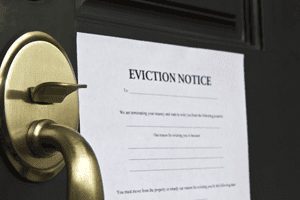
This blog is for members of the British Landlords Association to get a message out to your community that there are steps you can take to improve your position despite COVID restrictions, for collecting rent and recovering possession.
We are working together with the British Landlords Association to help members through this difficult time while dealing with COVID-19.
Shergroup, originating from the oldest Sheriff’s Office in the UK today, has several ways to help landlords in both commercial and residential settings.
Using our experience as Sheriffs and now High Court Enforcement Officers, we are helping our community to unblock some of the problems that affect landlords across England and Wales.
As a team, we have built an “enforcement playbook”, which sees us handle everything from a 1 bedroom flat, through to a power station with protestors at the top of a 600 ft chimney.
Your properties may fit somewhere in between, or you may have something more significant than a power station! Whatever it is that you need, there is a solution in law waiting for you to press on to get things moving. The purpose of this blog is to give you some options on how to manage your position rather than feeling completely stuck.
For landlords of commercial and/or residential property, there is the option to swap from the usual channels of collection to a straightforward money claim under Part 7 of the Civil Procedure Rules. You can set up an account at Money Claims Online for any claim up to £100,000.
The Government restrictions do not prevent this approach, and indeed any resulting judgment can be enforced using a Writ of Control, along with the other methods of enforcement. Of course, we like Writs of Control, primarily because we are IN CONTROL of what happens.
We have put together a national panel of enforcement agents who are paid on results, and unlike their county court counterparts, they are only paid on results. Rent instructions under CRAR or a Writ of Control have the same impact – the taking of the goods into control creates leverage for landlords gets paid.
High Court – Legal Claim Process
A formal demand should be written to the tenant before starting this procedure, and we can help you with this step if you need support. A money claim can be issued after 7 days against a business, or 30 days if against an individual or sole trader.
Interest can be added, along with fixed costs for a claim up to £100,000. The end result, after 19 days from issuing your claim (and in the absence of any Defence or Counterclaim) is an enforceable judgment.
Shergroup can enforce any judgment over £600 using a High Court Writ of Control. Our national panel of enforcement agents are well used to collecting in rent and will take a similar approach under a Writ of Control as they would to a CRAR instruction.
For landlords with residential property, the same option to use a Money Claim to collect in outstanding rent and or other sums is available. Again, the end result is a judgment which can be enforced using a Writ of Control.
A claim against an individual tenant(s) will be caught by the Pre-Action Debt Protocol. It will require 30 days to be given in any Letter Before Action to provide the tenant with time to pay. Other than that, the money claim can proceed.
Using CRAR During COVID
For Commercial Landlords with more than 276 days of outstanding rent due they can still utilize the Commercial Rent Arrears Recovery procedure known as “CRAR”.
The number of days for outstanding rent will increase in December to 366 days from the December quarter day. You can use this link to work out if you cross the threshold of days. But for many landlords, the calculation of the days will exclude the CRAR procedure as an option to collect the rent.
As it is Shergroup’s national panel of agents have enforced CRAR instructions during the lockdown period where the conditions of the new Regulations are met. So, if you can use CRAR, then that option is open to you, but if not, you can opt for the money claim route.
Achieving a Plan for Rent Payments Through Mediation
Landlords may be anxious about upsetting good tenants but need to find a way to agree on a repayment plan for the rent. In this context, mediation is a solution.
A trained mediator will bring the parties together in a controlled setting (usually on ZOOM or TEAMS) to help them achieve an agreed settlement. There is a process for this, but it is certainly an option when set against the cost of upsetting a good tenant or minimizing angst.
Shergroup offers a mediation solution through an experienced mediation team if this is a solution you may wish to go for.
Using Forfeiture During Covid
Despite the restriction imposed under The Coronavirus Act 2020 to suspend forfeiture of most business tenancies for non-payment of rent, landlords can still forfeit a lease if there is a ground to do so other than the non-payment of rent.
We can arrange the service of the Notices, and indeed we are seeing landlords take advantage of this lacuna where they can.
Enforcement and Possession Claims
Enforcing possession of a residential property is not available to landlords of residential properties in Tier 3 and Tier 2 or where other local lockdown areas exist. This means that for landlords with a possession order that allows for the possession order to be enforced in Tier 1, an eviction can go ahead.
We appreciate landlords have several hurdles to jump before having an enforceable possession order. To assist landlords in navigating through the ever-changing COVID regulations, we offer a free possession order review service. We will look at any possession order and guide the claimant on what needs to happen to be able to enforce in the High Court.
We anticipate that when evictions came back online, in something close to normality, landlords are going to be faced with severe backlogs in the court system.
It is for this reason that we encourage landlords to include in their Claims for Possession a statement seeking permission to enforce any resulting Possession Order in the High Court.
This simple wording will allow a landlord to leapfrog the county court system and begin the enforcement process in the High Court using a Writ of Possession. Here is what we have been recommending to landlords for over 10 years to help them move their enforcement away from county court bailiffs:
“AND the claimant intends to make an application for leave to have the matter transferred to the High Court pursuant to section 42 of the County Court Act 1984 for enforcement”.
If we see an Order with this wording or something close to it, we will be able to apply to transfer the enforcement of a possession order to the High Court.
Subject to the serving of the necessary Notice of Eviction and waiting 14 days before carrying out the enforcement process, a High Court Master will give permission for a Writ of Possession to be issued immediately on presentation of the necessary paperwork.
This small change in process for residential landlords could save weeks and months of delay in changing out tenants. The landlord indeed has to invest more upfront in using a High Court eviction service – but when set against the cost of a non-paying tenant over several months, the cost/benefit calculation is in the landlord’s favour.
For landlords who want to ask for permission to transfer to the High Court after a possession order has been made, we can help with this.
There is however post-Order no guarantee that a District Judge will be persuaded to make such an Order, so we have to build a case as to how the delay in enforcement is having a significant and adverse financial, and perhaps health, impact on a landlord.
Help is at Hand for BLA Members
The Shergroup TEAM has over 100 years of operational experience in the field of enforcement – and we are here to support landlords on their enforcement issues in the weeks and months ahead.
You can reach us by phone, email, live chat, Facebook or LINKEDIN – you can find us on www.shergroup.com.
Please send us your possession orders to review and we will give you the benefit of our experience in sorting out your situation to help you move forward.
Source: Shergroup
Date: 30th of October 2020
Other related Blogs
Commercial Landlords how to deal with rent arrears in 2020, Forfeiture and Statutory demand




